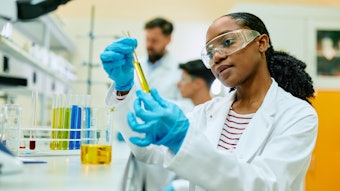A report by Kline & Company has found that consumer awareness and media coverage of active ingredients has driven their growth in the United States. Specialty Actives in Personal Care 2011: U.S. Market Analysis and Opportunities found that specialty actives garnered nearly US$ 240 million in 2010 and is expected to grow at an annual growth rate of 3.8% from 2010 to 2015.
In the specialty actives market, the report found natural/botanicals dominate with 38% of the market share. Anna Ibbotson, industry manager in chemicals & materials practice at Kline, noted consumers are looking for a natural product's function and efficacy in addition to the active's source. The report noted that this will continue to sustain the natural/botanical market. The report added that biotechnology is the fastest-growing actives category, with an estimated compound annual growth rate of 4.5% from 2010 to 2015.
However, the report found that from the functionality perspective, the largest and the fastest-growing group is anti-aging, which includes sub-functionalities such as antiwrinkle, firming, moisturizing, skin radiance, or age spots, accounting for 56% of the market in 2010.
“The increasing average age of a US citizen and desire to look younger has raised consumer expectations for efficacy of active ingredients resulting in functionality becoming increasingly important,” commented Ibbotson. “Consumers want to see results, and this is reflected in the trend toward more effective finished personal care products.”
The specialty actives market is fragmented although recent mergers and acquisitions have created a more structured industry. Each category of specialty actives is dominated by a different group of companies. BASF, with its own active ingredients division BASF Beauty Care Solutions and its most recent acquisition of Cognis and Laboratoires Sérobiologiques, has established itself as the market leader, according to Kline. Competition in the market is centered around two key factors: combining efficacy with the natural trend, and distinction of the product due to a unique characteristic, such as patented molecules like ascorbic acid 2-glucoside (AA2G) or a unique extraction process.
Kline's report suggests opportunities exist in these markets, given steady growth projections and the current diversity in supplier specialty.









